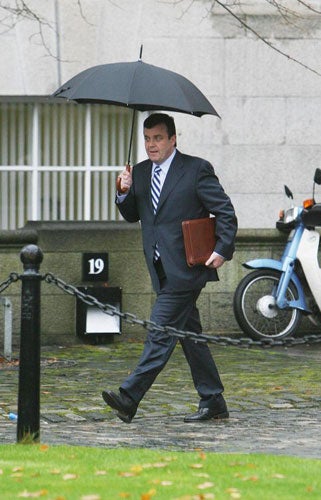Irish pensioners rebel over plan to cut their health care

Your support helps us to tell the story
From reproductive rights to climate change to Big Tech, The Independent is on the ground when the story is developing. Whether it's investigating the financials of Elon Musk's pro-Trump PAC or producing our latest documentary, 'The A Word', which shines a light on the American women fighting for reproductive rights, we know how important it is to parse out the facts from the messaging.
At such a critical moment in US history, we need reporters on the ground. Your donation allows us to keep sending journalists to speak to both sides of the story.
The Independent is trusted by Americans across the entire political spectrum. And unlike many other quality news outlets, we choose not to lock Americans out of our reporting and analysis with paywalls. We believe quality journalism should be available to everyone, paid for by those who can afford it.
Your support makes all the difference.The Irish Prime Minister, Brian Cowen, has launched an emergency attempt to cope with a phenomenal wave of public and political criticism of health cuts for the elderly in his budget. Political turmoil erupted on a major scale after the government announced an end to the system of free medical cards for the over-70s, triggering anxiety among the elderly Irish population.
One of Mr Cowen's backbenchers has become a local hero by resigning from his Fianna Fail party and others, together with independent members important to the government, have voiced strong public opposition to the measure.
The political reality that the new provision will have to be radically modified was illustrated when the aunt of the Finance Minister, Brian Lenihan, said this part of his budget would have to be looked at again. The significance of this is that Mary O'Rourke is both in her 70s and is a formidable politician and cabinet minister. She declared briskly that she was sure ministers "would pay heed to all that has been said".
Backbenchers say they have been inundated with calls from the public expressing anger and indignation at the measure affecting the elderly.
Last week's budget brought in many cuts in government spending, as had been expected in the wake of the ending of the Irish economic boom and of the overall global financial crisis. Almost all of the austerity measures were regarded as inevitable, but the medical card removal was regarded as unfairly targeting the vulnerable elderly. One opposition leader described it as a "cruel and heartless attack".
The crisis is regarded as slightly baffling since Fianna Fail is known as a populist party which is famously in touch with the grassroots and has its finger on the pulse of the country. It is still unclear how it came to perpetrate a gaffe of such proportions.
Yesterday, the Prime Minister tried to defuse the sense of crisis, saying in an Irish radio broadcast he had delayed joining an important trade mission to China to sort things out. Although ministers had maintained that there could be no reversal of the plan, he explained that this was "not the ultimate proposal". He said he was "working very hard to see how to come up with a solution to the problem".
He appealed for "some time and space in which to do that in a way which respects the parameters of the budget arithmetic. "This is not the ultimate proposal because it doesn't merit or have the wider public acceptance that it would need to have. I'm addressing those concerns."
He made clear he still favoured ending the universality of benefits in the case of the medical cards. But he is likely to bow to the inevitable and make drastic changes to the proposal.
Join our commenting forum
Join thought-provoking conversations, follow other Independent readers and see their replies
Comments